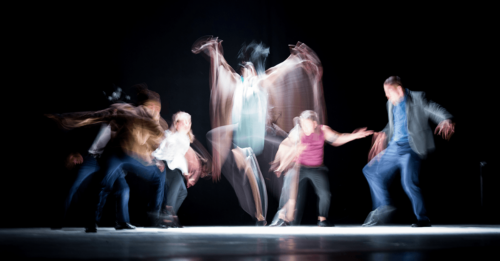
corybantic /KOR-ə-BAN-tik/. adjective. Wildly excited; frenzied. Derived from Corybant, a priest of Cybele, Greek (and Phrygia’s only known) Goddess of fertility and nature, whose worship included loud music and riotous dancing. Celebrants, then and now, literally and figuratively, are sometimes called corybants or corybantes.
“That most popular and influential of all recent inventions, the radio, is nothing but a conduit through which pre-fabricated din can flow into our homes. And this din goes far deeper, of course, than the ear-drums. It penetrates the mind, filling it with a babel of distractions—news items, mutually irrelevant bits of information, blasts of corybantic or sentimental music, continually repeated doses of drama that bring no catharsis, but merely create a craving for daily or even hourly emotional enemas.” (Aldous Huxley)
“They filled the cavernous depths of the dining room from end to end, behaving as though they were extras in one of those continental films his wife pretended to love, eating with such abandon, gesturing so exuberantly, rising from the tables to dance with such corybantic fervour that he felt half dead.” (Beryl Bainbridge)
“I was able to discern a hefty blonde, no doubt Annie herself, clad in a yellow track-suit, leaping up and down and shouting commands in time to the music. The corybants she commanded were mainly young, but among them I spotted a breathless Ballard, pale and eager, leaping as best he could, clad in a bright purple track-suit and elaborately constructed plimsolls…” (John Mortimer)
“But in that moment of solitude prosaic, earthbound Mr. Pinfold had been one with hashish-eaters and Corybantes and Californian gurus, high on the back-stairs of mysticism. His mood on the road to Cairo was barely less ecstatic.” (Evelyn Waugh)
“In a large envelope he came across a number of photographs. A group of village maidens, Cissy prominent among them, with their arms upraised in what was clearly intended for corybantic ecstasy.” (Ngaio Marsh)
“…the bar had been built in 1933, to celebrate and capitalize upon the repeal of Prohibition, and its spacious, even somewhat cavernous dimensions were originally meant to encompass a dance floor. Such Corybantic revels as envisioned by the first owners never took place, however, since through some incredible oversight the raunchy entrepreneurs failed to realize that they had located their establishment in a neighborhood substantially as devoted to order and propriety as a community of Hard Shell Baptists or Mennonites.” (William Styron)
“…a corybantic enthusiasm seized upon the emotionally religious, and those priests and priestesses of Cybele who were famous for their frenzy and passion in camp-meeting devotions seemed to find an equal expression that night in the waltz.” (Bret Harte)
“People are shaped by the things they listen to and the recreations they enjoy, and Plato was surely right to regard the Corybants of his time with a measure of suspicion. Adorno shared Plato’s qualms for other reasons—notably because he saw the new American music as the enemy of autonomous thought, a kind of captivating addiction that resulted in the enslavement of its devotees.” (Roger Scruton)



